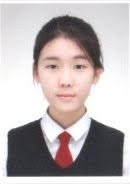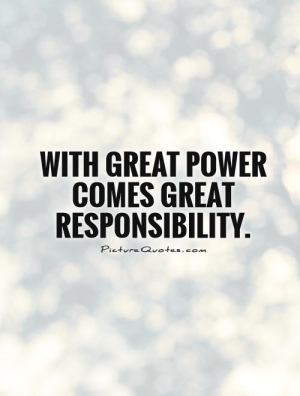
I wake up every morning to the sound of my alarm, which demands that a photo be taken from a fixed place to turn it off. I check the weather online with my phone, and ride a school bus that sends a message to my mom when I punch the card. The advancements in science and technology that have brought us to the 21st century are indescribable.
Almost everything is getting automated, and our technology dependence is increasing day by day. Unfortunately, because of this social trend, the importance of the liberal arts is falling rapidly. Already, many schools in Korea are “merging” their liberal arts programs, which is no different from complete closure. The government is trying to eliminate unpopular departments in the liberal arts thinking they have no use in this country’s development.
This is part of a social climate that belittles the liberal arts while elevating the natural sciences or engineering. However, this misses the fact that it’s impossible to make the world a better place with just science and technology. Though liberal arts courses may not directly help to develop technology, they help students to understand what technology we need and how to apply it to real life, which is crucially important.
Steve Jobs, the founder of Apple, once said that what gave him the most inspiration in making the iPhone was a calligraphy class he took in university. Thanks to that class, the iPhone is praised as the world’s best-designed piece of electronics device. Clearly, there are some liberal arts subjects that natural sciences or engineering students should take at any cost in order to improve their work. If I had the choice to designate three subjects for natural sciences or engineering students, I would choose ethics, literature and history.
The first and most important subject is ethics. Most people would probably agree with this, especially now because of ethical concerns regarding cutting-edge technology like AI. Recently, the whole world was startled by the news that AlphaGo, an AI that specializes in Go, beat the world Go champion, Lee Se Dol. Go was considered to be a game that could never be won by robots because of its large number of possible moves. This fact made the shock even bigger. Although AlphaGo did not seize complete victory, because it lost one game out of five, it was enough to show its potential and astonish the world. Now AI isn’t just material for sci-fi movies, and scientists agree that AI’s potential is infinite.

AI has become smarter than we ever expected in a very short time. It could become much smarter than humans. Wouldn’t that be a total nightmare Some people say that AI technology development should be banned due to worries like “could we instill ethics into AI” or “Won’t AI harm us as they continue to evolve” However, it is impossible now to stop AI development. And imagine living with AI robots without any ethics. It would be a total disaster. Scientists should have an ethical mindset in order to make ethical AI; we cannot expect AI to be ethical if it is made by scientists with no ethics training. It is unfortunate that the subject of ethics has a low priority in Korea education generally. In high school it is not even a required subject for natural science students.
The second subject all natural science students should take is literature. Many would wonder why I have chosen literature instead of economics or politics, which may seem more practical. Literature is as important as ethics for natural science students because it helps people empathize with social and ethical problems. Since one of the functions of literature is social criticism there are many novels that discuss the social issues of that time. Sometimes, even though we know that scientists should make technology based on ethics and that technology should be used to help the poor and marginalized it’s hard to feel it deeply it our hearts. It’s because what we learn in ethics are generalized case illustrations.
However, books, especially fiction, deal with dramatic stories to pull the readers’ interest. Also because books express characters’ feelings in more detail, we can more readily empathize with their situation. I would bet that reading A Small Ball Shot up by a Dwarf would be much more effective than taking ten classes that teach “scientists should make technology for the marginalized.” Also science fiction like 1984 and Brave New World give us an idea of the dangers of technology gone wrong.
Lastly, science students should study history. The 21st century is fast-changing and new technologies are being developed every day. So sometimes we feel like we don’t know how to adapt to all these changes. Even scientists who create the new technologies cannot really know how to cope with the changing times. This is why history education is needed. From history we can learn the past and understand how new technology impacted different societies. Today we are mesmerized and afraid of new technologies like AI and ubiquitous tech.
However there was a time when we called the lightbulb a new technology and was amazed by it. No matter how big or small, the technologies we have now were new technologies at the time. We can learn how we should react by learning how people reacted and adapted in the past. For example, when the industrial revolution started in the 19th century, a lot of people argued that machines were dangerous and that they were taking peoples’ jobs.
Now thanks to the industrial revolution and mass production we are living in a world with an abundance of material supplies. However, in the process a lot of workers did lose their jobs and that made their economic problems even worse. So, the result of the industrial revolution was that most peoples’ lives became more affluent but also increased the gap between the rich and poor. When we look into history we can see that the gap gets bigger when new, innovative technology is made. Probably if technologies like AI or gene manipulation become commercialized, this situation will intensify the gap between the rich and poor and will contribute to a fixed social status. To sort out this problem we should compare with past cases and discuss measures in advance, bases on how people reacted then. In this way, history can help us predict and cope with the future.
It is true that science and technology have made our lives more efficient. However that does not mean that liberal arts subjects are not needed anymore. It is upsetting to see that in school these days there is a climate of neglect towards students who are studying the liberal arts. There is even a harsh mood between science and liberal arts students that you can’t see. In order to wisely and economically apply science and technology to real life, studying the liberal arts is essential.
Fumio Harashima, a former electrical engineering professor at Tokyo Metropolitan University, gave a Lifetime Talk at the recent IROS 2016 Conference in Daejeon, where he said that “mechatronics and robotics is an interdisciplinary field that requires not only technical knowledge but also an understanding of psychology and social science.” So he is quick to encourage engineers to broaden their academic backgrounds. There is no need for science and liberal arts students to fight with each other. Both studies are not completely separate but are linked intimately and can supplement each other. To make a world a better place there is no doubt that the sciences and liberal arts should be united. Technology brings great power; the liberal arts will help us to use that power responsibly.
By Ye Kyung Lee (Daedeok High School)

